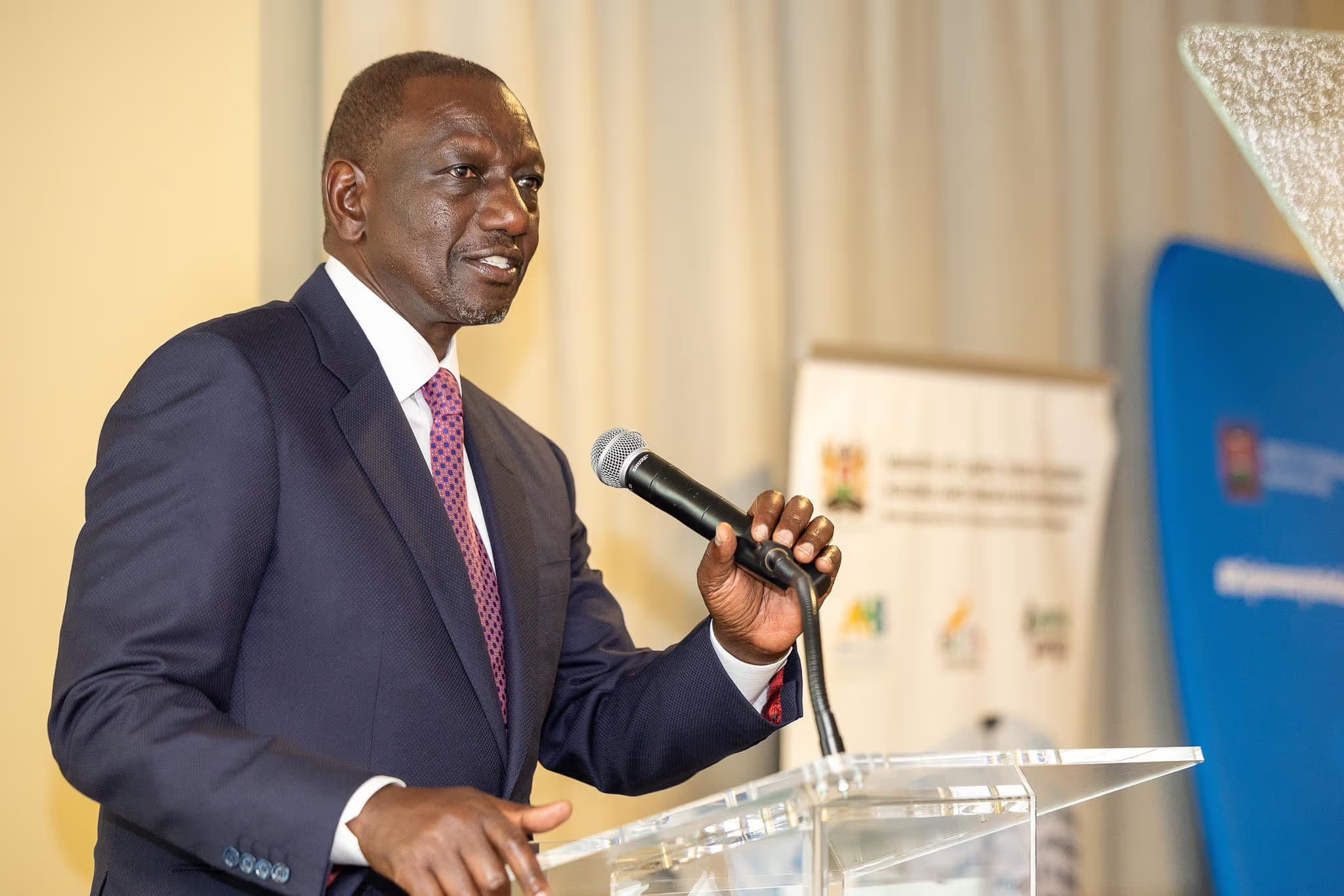We're loading the full news article for you. This includes the article content, images, author information, and related articles.
President William Ruto’s call for patriotism and a positive outlook is meeting significant public pushback as Kenyans grapple with a high cost of living, new taxes, and concerns over national debt.

NAIROBI, KENYA – Monday, 10 November 2025, 6:49 AM (EAT) – President William Ruto has issued a strong call for national pride, urging Kenyans to reject negativity and believe in the country's potential. Speaking at recent public forums, the President has pushed back against critics, stating that Kenya is not a failed state and is on a positive trajectory. "We must stop the naysayers. We must stop with the negativity. Kenya is a great country, believe in it," President Ruto stated, emphasizing that his administration is focused on long-term transformation rather than short-term political cycles.
The President's remarks are part of a broader government narrative highlighting positive economic indicators and key development projects under the Bottom-Up Economic Transformation Agenda (BETA). Officials point to moderated inflation, which the Kenya National Bureau of Statistics (KNBS) reported at 4.6% in September 2025, as a sign of economic stabilization. The government also highlights its efforts in agriculture, such as the fertilizer subsidy program, which it claims will lead to a bumper maize harvest and subsequently lower food prices.
Despite the government's optimistic messaging, a significant portion of the Kenyan public reports facing severe economic pressure. The high cost of living remains a primary concern for many households. Data from various sources indicates that while headline inflation has eased, the prices of essential goods and services, including food, transport, and utilities, remain elevated, straining family budgets. According to a September 2025 poll by Trends and Insights for Africa (TIFA), a majority of Kenyans feel the country is heading in the wrong direction, with 70% reporting that their economic situation has worsened since 2022.
The implementation of the Finance Act, 2025, has further fueled public discontent. The act introduced a raft of new taxes and levies, which organizations like the Kenya Private Sector Alliance (KEPSA) have warned could suppress business growth and investment. These measures, including increased taxes on salaried employees and essential goods, have faced legal challenges from civil society groups and have been the subject of public protests, with critics arguing they place an excessive burden on already struggling citizens.
Adding to the economic anxieties is Kenya's rising public debt. According to the Central Bank of Kenya (CBK) and National Treasury data, the total public debt stood at Kshs 11.5 trillion as of May 2025 and surpassed the Kshs 12 trillion mark by September 2025. This figure places the country's debt-to-GDP ratio at approximately 67.4%, significantly above the 50% threshold recommended for developing countries by the International Monetary Fund (IMF). Economists have raised concerns that high debt servicing costs, which consume a large portion of government revenue, are limiting funds available for essential public services and development projects.
The President's call to dismiss "naysayers" has drawn sharp responses from opposition leaders and the public. Critics, including former Deputy President Rigathi Gachagua, argue that the government's narrative is disconnected from the daily struggles of ordinary Kenyans. Opposition figures have accused the administration of failing to address the root causes of the economic hardship and have vowed to challenge the President in the 2027 elections. Public sentiment, particularly on social media, often reflects this frustration, with many citizens using online platforms to voice their concerns over unemployment, taxation, and governance.
While the government projects GDP growth of between 4.5% and 5.6% for 2025, supported by institutions like the World Bank and the African Development Bank, this macroeconomic outlook appears to clash with the microeconomic reality experienced by many citizens. The disconnect between the official narrative of progress and the lived experience of economic strain continues to define the national conversation, posing a significant challenge to the administration's efforts to foster a unified, positive national identity.
Keep the conversation in one place—threads here stay linked to the story and in the forums.
Sign in to start a discussion
Start a conversation about this story and keep it linked here.
Other hot threads
E-sports and Gaming Community in Kenya
Active 9 months ago
The Role of Technology in Modern Agriculture (AgriTech)
Active 9 months ago
Popular Recreational Activities Across Counties
Active 9 months ago
Investing in Youth Sports Development Programs
Active 9 months ago
Key figures and persons of interest featured in this article